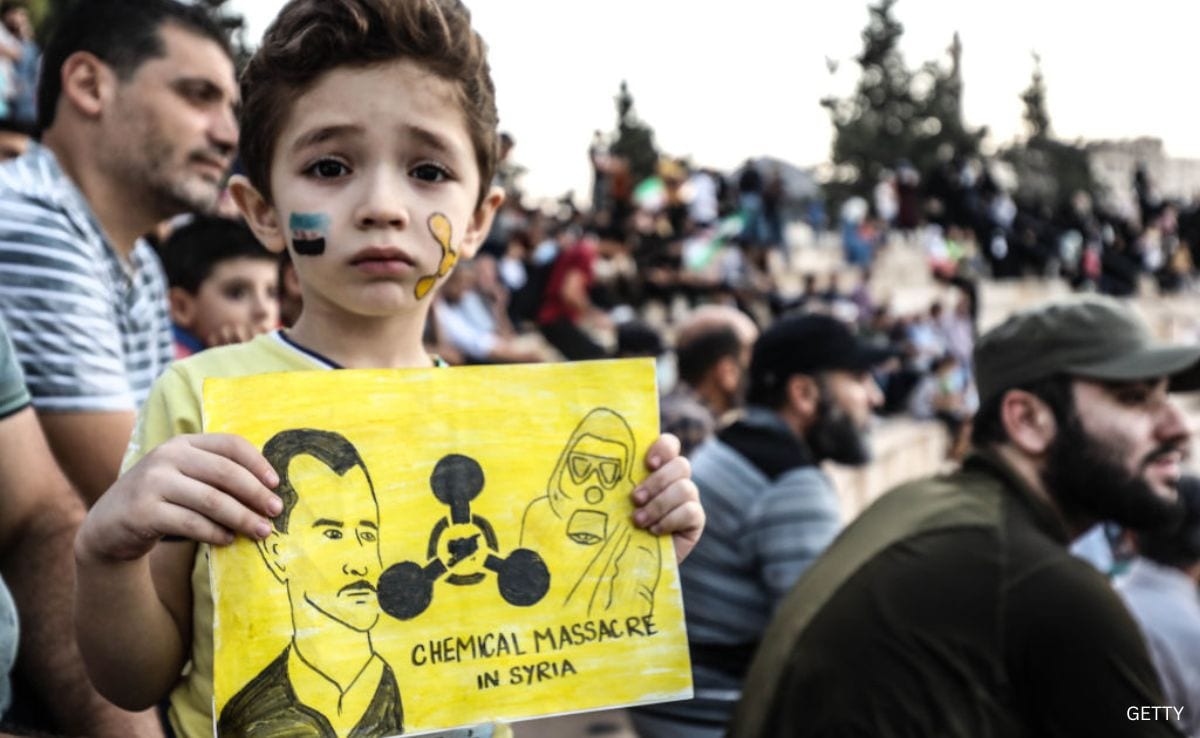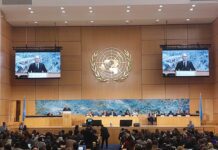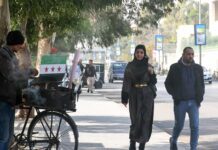
The international community is intensifying efforts to hold ousted Syrian dictator Bashar al-Assad accountable for war crimes and crimes against humanity committed during his rule. Recent developments, including new arrest warrants and legal action in multiple jurisdictions, mark significant steps in the pursuit of justice for victims of Assad’s regime.
French Court Issues New Arrest Warrant
On Tuesday, Jan 21, a French court issued a new arrest warrant against Bashar al-Assad, charging him with complicity in war crimes linked to the bombing of Daraa in 2017. The attack, which killed French-Syrian citizen Salah Abu Nabut, was allegedly carried out by helicopters belonging to the former regime forces.
French judicial authorities believe that Assad directly ordered the attack and provided the necessary means to execute it. The victim’s son, Omar Abu Nabut, hailed the development as the culmination of a long pursuit of justice.
The new arrest warrant, issued by judges from the Crimes Against Humanity Division of the Paris Criminal Court, follows a previous 2023 warrant related to chemical weapons attacks in Eastern Ghouta in 2013 that killed over a thousand civilians. That warrant also targeted Assad’s brother, Maher, along with senior regime officials Ghassan Abbas and Bassam al-Hassan.
While Assad previously enjoyed immunity as a sitting head of state, the French judiciary ruled in July 2024 that his personal immunity was not absolute, setting a precedent for further legal action. The Paris Court of Cassation is set to review the latest case on March 26.
Calls for ICC Prosecution
The United Nations Special Rapporteur on Torture, Alice Gill Edwards, has urged Assad’s prosecution before the International Criminal Court (ICC), describing it as “the most appropriate venue” to address the regime’s crimes. Edwards highlighted years of systematic torture, enforced disappearances, and extrajudicial killings carried out by the regime, calling for the international community to take decisive legal action.
“The Assad regime has used torture for years to control the population, instill fear, and suppress any legitimate opposition,” Edwards stated.
She also called on the administration of the Syrian Caretaker Government (SCG) to ratify the ICC’s Rome Statute, allowing the court jurisdiction over crimes committed in Syria, and urged other countries to refer Assad’s crimes to the ICC for prosecution.
Edwards further suggested the establishment of a hybrid court for Syria, similar to models used in Sierra Leone and Cambodia, combining national and international judicial expertise to ensure comprehensive accountability.
Turkish Legal Action on Sednaya Prison Crimes
In a parallel effort, Turkish lawyer Gulden Sonmez filed a criminal complaint against Assad and other regime officials with the Istanbul Public Prosecutor’s Office, focusing on the notorious Sednaya Prison. Known as the “human slaughterhouse,” Sednaya was a site of mass executions, torture, and severe human rights violations.
The lawsuit demands international arrest warrants for 17 senior Assad-era officials, citing evidence of detainee torture, rape, and killings. Sonmez has called on Syrian NGOs and international human rights organizations to provide additional documentation to support the case.
The petition references new evidence, including mass graves and testimonies from survivors, urging field investigations around detention centers. “This legal action seeks justice for the countless victims of Assad’s atrocities,” Sonmez stated, emphasizing the importance of holding the regime accountable beyond Syria’s borders.
International Mechanism Expands Investigations
Meanwhile, the head of the International, Impartial, and Independent Mechanism (IIIM) for Syria, Robert Petit, visited Damascus to discuss cooperation with the SCG. The IIIM, established to investigate and document war crimes in Syria, aims to collect and preserve evidence for future legal proceedings.
Petit emphasized that Assad’s fall has provided an opportunity to enhance accountability efforts and ensure that perpetrators face justice.
“Our ongoing work aims to protect evidence and support justice for the countless victims affected over the past 14 years,” Petit said following his visit.
Path to Accountability
While significant strides have been made in holding Assad accountable, legal experts warn that challenges remain, particularly in securing his extradition and coordinating international legal efforts. However, recent developments have renewed hope among victims and human rights organizations that justice is within reach.
As the international community continues to pursue legal avenues, the new Syrian administration has expressed its commitment to supporting accountability efforts and facilitating cooperation with investigative bodies. With mounting pressure from global institutions, it remains to be seen how Assad and other senior figures from his regime will respond to these growing legal challenges.








